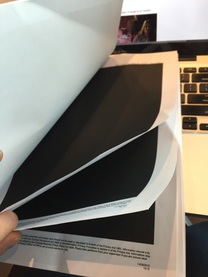In November last year, I raised two concerns in the Herald column: the first was that I had been blacklisted by police from accessing their data and the second was a broader issue that police research contracts were curbing academic inquiry and free speech. The Herald's David Fisher gave the whole issue a good nudge on the same day.

My redacted police file was a bit of a giggle but it did make things look sinister, which was perhaps the point. I stated that if the police removed the black ink than I would make it public. My fieldwork research gangs was no picnic but I had nothing to hide.
In a letter published the NZ Herald, ten sociologist from the University of Auckland called the police moves against me a nonsense. I only learned about this when I read about it in Gavin Ellis's new book, there were so many examples of support that I couldn't keep up.
A number of politicians also came to my defence and one, Peter Dunne, wrote a letter to police minister Michael Woodhouse calling on him to intervene. Woodhouse was unmoved, saying the issue was 'operation'. It wasn't, of course, but it was a deft sidestep. But I do wonder if he pushed things along backstage.
Within a couple of days the Commissioner of Police, Mike Bush, was on TV3's The Nation promising a swift rethink. It was 9am, and I opened a beer.
There wasn't much to do by this stage, so I just waited to see how the wider issue of the research contracts would play out, saying I had trust in the police. If I'm honest, I wasn't sure I had that much trust but it sounded like a good line when talking to Lisa Owen.
Ten months or so later and the fruits of the police efforts have come to pass. And guess what? They look good.
RNZ and the Herald covered things this morning.
But in a nutshell, where do things sit? On paper the improvements to the contract are reflected in guiding principles that sound terrific. More data is to be released and in a more timely manner. The general thrust can be seen to have moved from a closed approach with exceptions, to an open approach with exceptions.
Privately, I had been told by a number of people in the police that an evidence led approach is a real objective and allowing academics greater access to data is a part of this.
So it's time for another beer, right? Maybe. These are positive developments without question and those involved ought be congratulated. My only caution is whether or not the people who control the data within the police are on board. Can the culture within that research unit change so dramatically, even with a new person at the helm? Let's hope so.
There is another small kicker here, too. As I was typing this Twitter has asked, why isn't all of the data covered by the Official Information Act? It's a great point. And if things don't quite play out as promised, it will be one that will undoubtedly be tested in the courts at some stage.
But let's hope it doesn't come to that. Let's hope the new policies work as well as they read. Let's hope that in a year or so we are citing the cops as the exemplar of open government at the forefront of academic inquiry. Let's hope.


 RSS Feed
RSS Feed